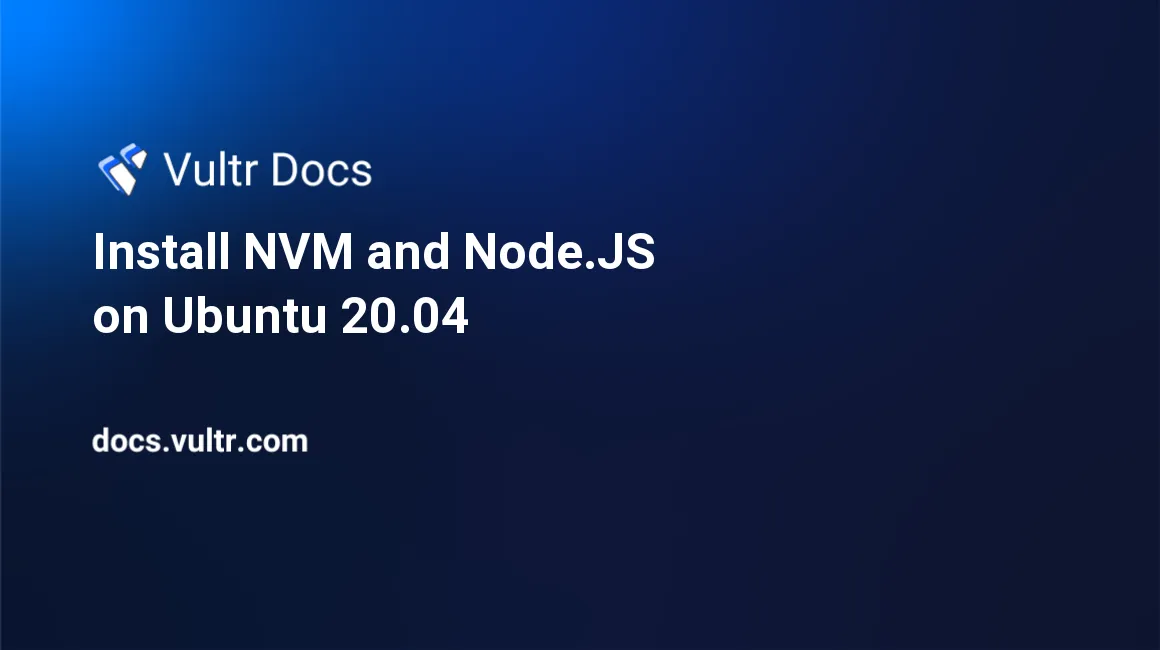
Introduction
Node Version Manager (NVM) allows you to install and switch between different versions of Node.JS using the command line. This article explains how to install Node Version Manager and Node.JS on Ubuntu 20.04.
Prerequisites
To complete this guide, make sure you have a fully-updated Vultr Ubuntu 20.04 server.
Install NVM (automatic)
SSH to the server.
Install NVM.
$ curl -o- https://raw.githubusercontent.com/nvm-sh/nvm/v0.38.0/install.sh | bash
Install NVM (manual)
SSH to the server.
Install NVM. The following command installs the latest version of NVM into
$HOME/.nvm.$ export NVM_DIR="$HOME/.nvm" && ( git clone https://github.com/nvm-sh/nvm.git "$NVM_DIR" cd "$NVM_DIR" git checkout `git describe --abbrev=0 --tags --match "v[0-9]*" $(git rev-list --tags --max-count=1)` ) && \. "$NVM_DIR/nvm.sh"Edit your
~/.bashrcfile:$ nano ~/.bashrcAdd the following lines at the end of the file:
export NVM_DIR="$HOME/.nvm" [ -s "$NVM_DIR/nvm.sh" ] && \. "$NVM_DIR/nvm.sh" # This loads nvmSave and exit the file.
Reload your
~/.bashrcto activate NVM.$ source ~/.bashrc
Test NVM
Verify NVM is installed with the
-vparameter. It should return the version number as shown.$ nvm -v 0.38.0
How to Upgrade NVM (automatic)
SSH to the server, and re-run the automatic script.
$ curl -o- https://raw.githubusercontent.com/nvm-sh/nvm/v0.38.0/install.sh | bashHow to Upgrade NVM (manual)
SSH to the server, then run the following to update from GitHub.
$ (
cd "$NVM_DIR"
git fetch --tags origin
git checkout `git describe --abbrev=0 --tags --match "v[0-9]*" $(git rev-list --tags --max-count=1)`
) && \. "$NVM_DIR/nvm.sh"Install Node.JS
To install a specific version of Node.JS, specify the desired version number.
$ nvm install 6.14.4To install the latest release of node, use node, which is an alias for the latest version.
$ nvm install nodeTest your node installation.
$ node -vMore Information
To learn more about how to use NVM, see the project documentation.